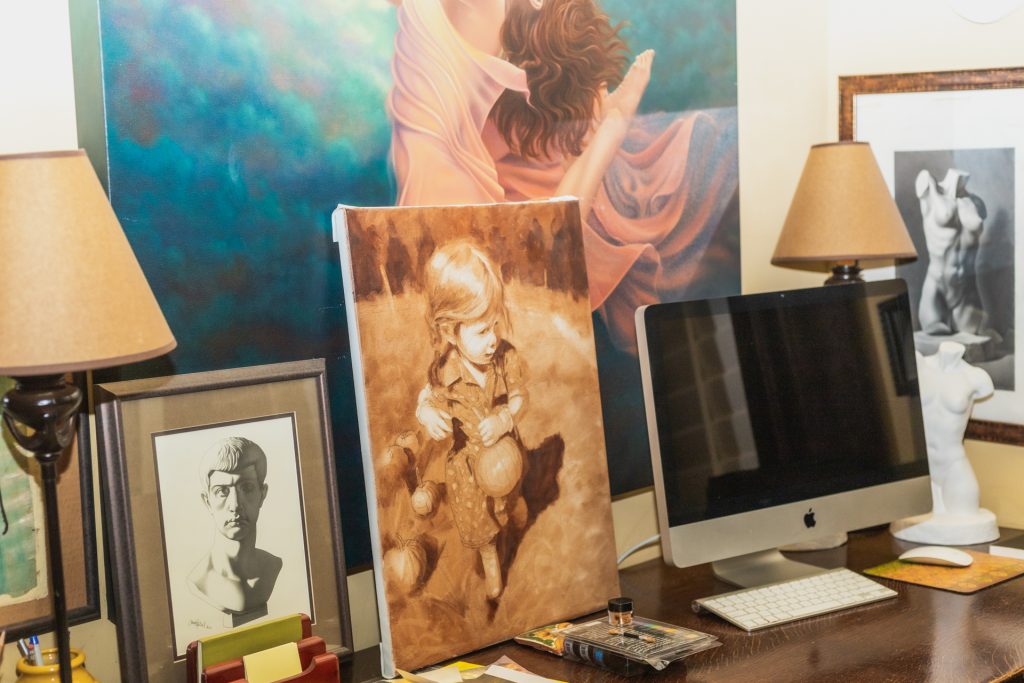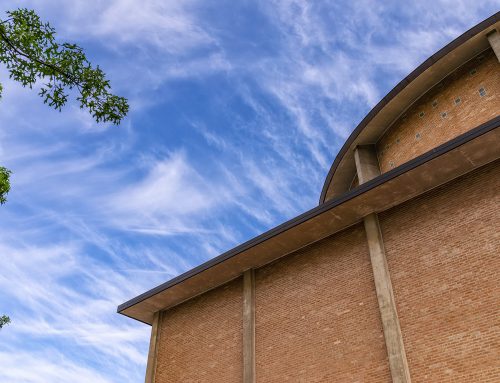Ever since she was little, Jana Rentzel had an artistic flair. She loved painting and drawing.
But she also loved God.
Her Protestant family attended church every Sunday in her hometown, Pine Bluff, Arkansas.
“It really didn’t address my deeper spiritual questions. And so I actually moved away from the church once I got to college,” she says.
After earning a fine arts degree at Memphis College of Art, she moved to Dallas for a job as the head illustrator for Neiman Marcus’ nationwide advertising. She could work remotely, so she decided to move to a small cabin in Colorado. That’s where she was introduced to Buddhism.
Nestled in the mountains, she began a seven-year training with Greg Tzinberg in Ageless Wisdom Teachings.
“I studied and practiced Buddhism for that period of time, and not with the intent of becoming a Buddhist, but just because it was really addressing my deeper spiritual search,” she says.
Rentzel still talks to Tzinberg and his wife every week.
In 1992, she started her master’s degree in transpersonal psychology and began training to be a counselor. She eventually received a doctorate in psycho-oncology and worked as the chaplain at Baylor University Medical Center.
Rentzel, who still paints, now teaches at Southern Methodist University’s Perkins School of Theology’s certification in spiritual direction, along with her online retreat program, Luminaries.
What is spiritual psychology, and how does that differ from traditional psychology?
The schools of psychology that are most prevalent are cognitive behavioral. And so really looking at our cognitions, how we think, how our thoughts influence our behaviors. And while that’s all hugely wonderful, and really important, there’s another dimension to who we are, and that’s our spiritual nature. How we perceive ourselves to be at a deeper — some people would even consider it our immortal level — who we were before we were born, who will be after we die. And a spiritual source, whether we call that God or ultimate reality, or Buddha, nature or whatever we call that deeper aspect of who we truly are, that has a huge effect on people’s lives and their perceptions of that. It’s always been so important to be able to work with people using both toolboxes.
Do your courses cover the major religions?
I follow some of the primary mystical teachers of all ages. So right now, I’m teaching a course based on Sufism, which is the mystical arm of Islam, and many corresponding similarities to Christianity and Judaism. On the surface, things can look really different. But when you get to the core tenets and principles, they all start looking a lot alike and it’s from that deeper core that I really pull from.
How do your SMU courses differ from the Luminaries courses?
Well, they’re in person, which I really love. And this is set up for professionals, people already working in the field of either theology or counseling of some sort. But it’s set up where people attend three intensive weekends a year for three years.

Do you still paint?
I have a studio in my home. I’m not doing portrait commissions anymore, because my time got so limited that I decided if I didn’t have that much time to paint, I’d rather paint what I wanted to paint. And I’ve got plans in the works for a book that I want to write. A lot of what you and I have been talking about about our spiritual unfoldment, I want to illustrate as well with painting. So that’s going to be a project that will probably keep me busy and out of trouble for the next few years.
How has your own spirituality changed?
I love to think that I’m a good enough teacher that I’m learning as much as I’m teaching. So I think that’s a big part of it. I have grown much more spiritual. I’m married, and I have three stepdaughters. I have six grandchildren. I’ve got two golden doodle doggies that are like my four-legged children. So I have a really full life. But what I’ve really learned, that means so much to me, is how to integrate my outer more worldly life with my inner spiritual life so that they’re not two separate things. I love that I’ve gotten to a place in my life where I can have one foot in both worlds pretty much all the time. It allows me to bring a lot more love and compassion and peace and calmness into my life and hopefully, into the world around me.






